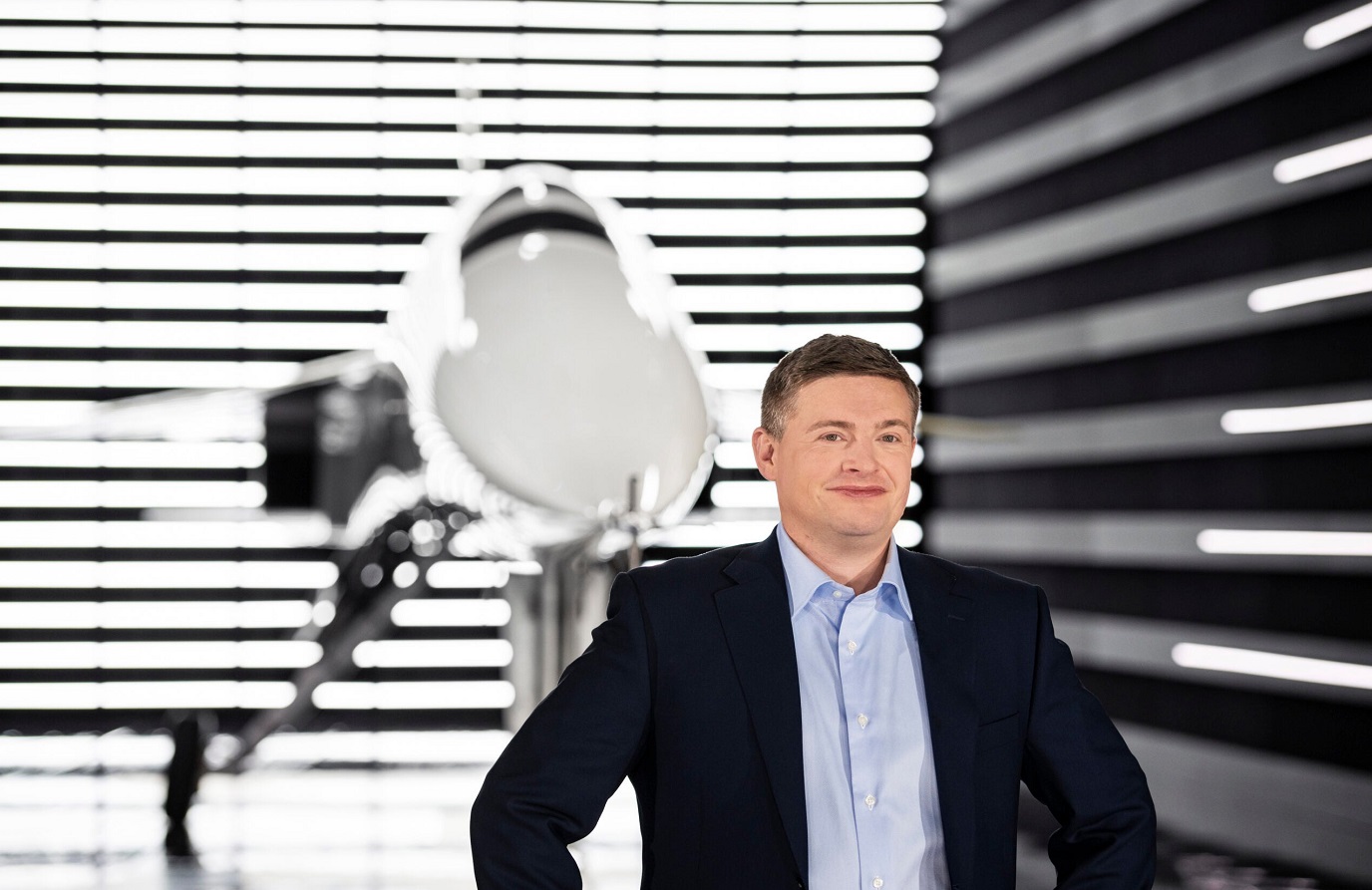
Blake Scholl is the founder and CEO of Boom Technology.
- Worked as a programmer at Amazon since 2001
- At 24, he ran a $ 300 million P&L division
- , Pelago
- 2010 Kima Labs
- 2012- Kima Labs Groupon
- Boom Supersonic 2014
- 2016 Y Combinator
- 10
- 2017 $51
- 2019 $100 ( $151 )
- 2020 ,
YC
Craig: Let's start with the simplest question. What does Boom do?
Blake: Boom makes supersonic passenger aircraft that most people can afford to fly. It's been 50 years since Concorde was created and we finally have the technology to make high-speed flights economical for airlines and affordable for passengers. We will make the whole world more accessible.
Craig: How did you get this idea?
Blake:Well, the idea of supersonic flight is obviously not new. After I graduated from college, I worked as a pilot, although I never flew the Concorde. The history of supersonic aircraft is unique in terms of technology: we had amazing opportunities, but then we just went back. Our phones and computers are much smarter, we will soon have self-driving cars and genetically engineered drugs, but we still fly at the same speeds as in the 60s. We had a supersonic aircraft, but its use did not become mainstream. I have not heard of any technology story like this.

The model of the airplane with which Blake Scholl went to meetings and presentations.
If you look back at the history of entrepreneurship and innovation in aviation, you will see that all the major breakthroughs have been made by the companies led by their founders. The first plane was created by bicycle entrepreneurs. The first airliner to be put into practice, the DC-3, and the first jet, the De Havilland Comet, were built by companies run by their founders. The last new commercial aircraft company was founded in 1921. The last founder left the field when (coincidentally or not) the first jet appeared.
Since then, we have Boeing and Airbus doing… optimization. They took existing basic designs, made them more efficient and safer, and at the same time completely updated the entire technology stack. They made airplanes more efficient, but they did not expand the spectrum of human capabilities. I truly believe that if we want to expand our spectrum of opportunities, then we need more entrepreneurs, more founders and more new companies.
Craig: Why do you think the founders can make such a noticeable impact?
Blake:The founders have a special way of looking at things. The founders are committed to making the world a better place. They take risks. They are making bold bets. In turn, the CEO of Boeing believes that they missed their 787th and publicly stated that the company "will no longer get involved in adventures." And this is a statement from a company that was literally in an adventurous business!
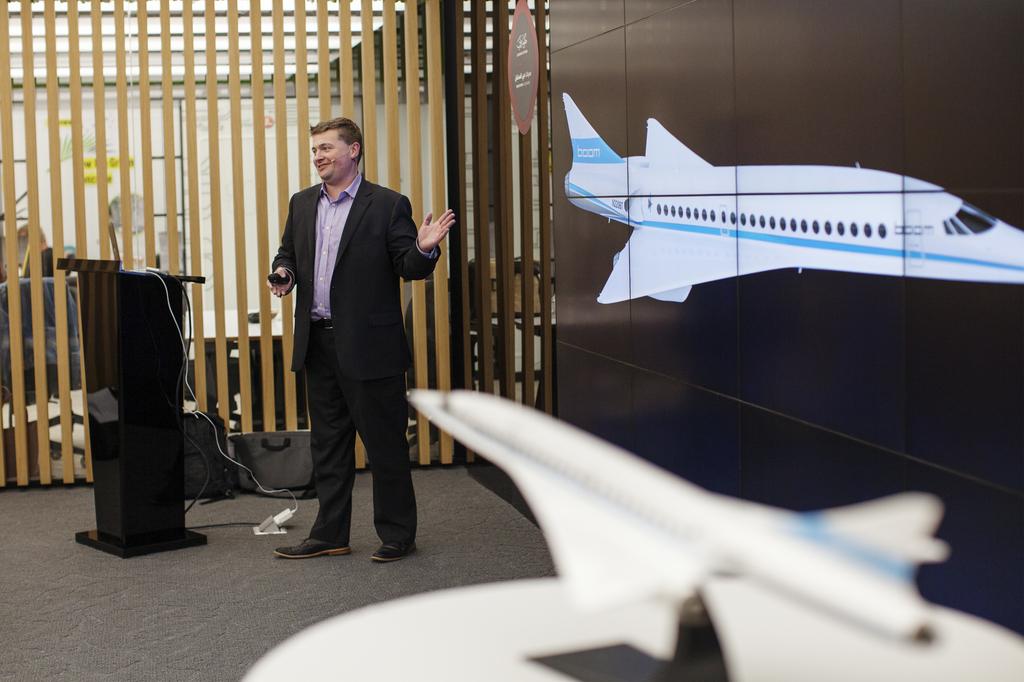
Craig: Wow. So, before you came to YC, you worked as a pilot, but that was not your profession, right?
Blake:Yes. I loved planes since childhood, but it never crossed my mind to build a career in aviation. I studied computer science and started a career in e-commerce and mobile development. If you ask my closest friends, they will tell you that I have been doing ultrasound technology for 10 years. My first startup was bought out by Groupon. Honestly, working with online coupons is the best way to shape the desire to work on what you really love. Over what you think can change the world for the better.
So I left Groupon and started making a list of startup ideas. I wrote them down in descending order in terms of how great it would be if they worked. Then I thought, “Let's say I cross a few items off the list and stick with idea number five. It will be some car rental company or something. " I was lucky because the more I studied ultrasound, the more I realized that this is not crazy, and that now is the time to work in this field.
Craig: So what made you want to join YC?
Blake:At first, I was skeptical about YC. Isn't YC in the business of social mobile apps? How can they help a startup that is working on supersonic aircraft? But Sam introduced me to other technology founders who worked with YC. They were thrilled with the experience and how YC can help clean up and polish ideas that are off the beaten path. I came to the conclusion that YC may not help us in terms of aircraft construction, but they will help in many other ways - in obtaining and demonstrating traction, as well as in raising capital. At first, capital was the biggest risk factor for Boom - there was a very high risk that we would not find the money for construction, and that the company would disappear the same way it appeared, without even having time to start working.
Coming to YC is one of the best things I've ever done. I think if it wasn't for YC, Boom would not have become what it is now. At YC, we were given two important pieces of advice, and that's what we needed. First, get out of the shadows, invisibility won't help you. Second, go and sell some planes.
I thought, "Okay, I have no idea how 10 basement guys who say they build supersonic airplanes are going to sell anything to airlines at all, but we'll try." It turned out that this is possible.
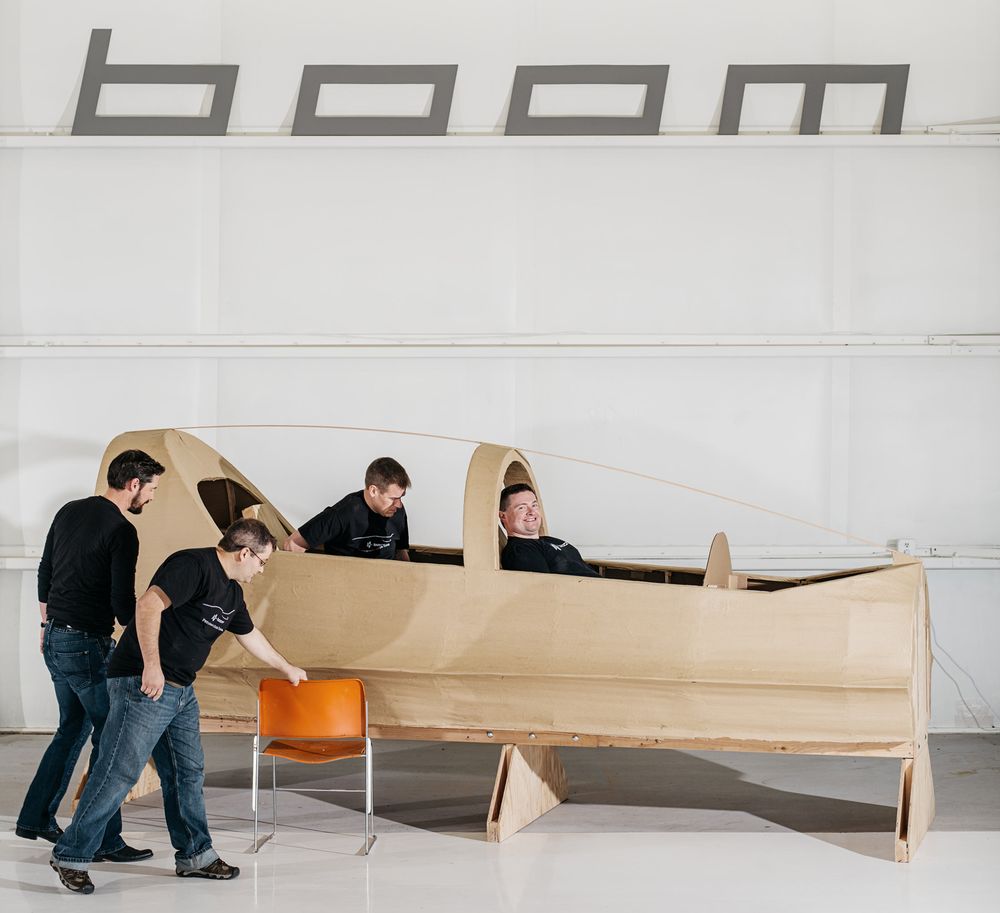
Joe Wilding, chief engineer of Boom, and Blake Scholl, founder and CEO of Boom, sit in a mock-up of a booth made of cardboard and plywood.
Craig: Your first deal was with Virgin, right?
Blake:Yes, and our partners at YC gave us advice: "Come to Demo Day with sales, otherwise your song is sung." So, I appreciated our sales funnel and it had United, Lufthansa and Air China. We had eight or nine weeks before Demo Day and I thought, “There’s no way I can close the deal with Lufthansa by Demo Day. It's just impossible. " And then I decided, "Okay, I'll make a deal with either a startup or Virgin."
So we decided to focus on deals with various startups and Virgin. Some of these startups have worked exclusively in business class. That is why we worked with guys who worked, started working or previously launched business class airlines. One of these companies sent us a letter of intent.
Literally 24 hours before the start of our time slot on the second Demo Day, we only had one letter of intent from one of the startups. If we had performed at the first Demo Day, the history of the company would have been completely different. During the second Demo Day, the night after the first, we received a letter from Virgin saying: “You can make the following statements ... We will take 10 of your first planes, we have options on them. We'll help you build them through Virgin Galactic. "
I fell off my chair and almost screamed. I read this letter three times before telling the team because I couldn't believe it. So, from the main laughing stock of Demo Day, we turned into a team that received a letter of intent for five billion - this record is unlikely to be broken in the near future.

Craig:Amazing. Can you give any tips on how to get sales this fast?
Blake: The main advice we got at YC was, “Be persistent. Be more persistent than you think you should. Be persistent enough to be annoying. If you feel that you are annoying, then you are doing everything right. " This tip really worked.
It is also important to note that we spoke directly with Richard Branson. We made sure that we had two different exits to it, so that one of them does not block the entire contact.
We also had friends at Virgin Galactic who supported us. Our advisory board was astronaut Mark Kelly, who is in contact with Richard. And Mark, in a sense, handled Richard for us. Finally, in February (roughly six weeks before Demo Day), Virgin Galactic launched its new spacecraft. We sent a letter to Richard that said something like, "Hey guys from Boom are going to come to Mojave for the launch of the spaceship, you should meet them while they are there." And then we went to the folks at Virgin Galactic and told them, "We're going to come over to meet Richard, can we come to your launch?"
Craig: * laughs *
Blake:So we got to meet with Richard, and we basically broke into their launch. I had to fight my way through 18-year-olds who seemed to be checking the lists and not letting someone in, but I managed to meet with Richard. We had about 15 minutes at breakfast with him and his mom. We showed him what we were doing and said, "Look, we are not asking for your money, we want to ask - when our planes fly, do you want the Virgin logos on them?" I think that was the key point. You need to ask for the right things. When you're working on a deal that is likely to be difficult to close, ask for something that can really help you. We told Richard that “If you are our buyer, we will find money elsewhere. We don't need your money. " And that was very important.
It is also very important to note that we had a deadline. Our deadline was Demo Day. If you've heard of Virgin, then you know that this company really cares about its brand and monitors its public presence. We told them, "We are launching our company on Demo Day, if you want you can be part of our launch." And if we didn't have a plausible deadline, nothing would have happened. Virgin heard of YCombinator and they took Demo Day much more seriously than I thought. They really wanted to participate in it.
Blake: In short, I'll put it this way: you need to be damn persistent, you need to have a clear deadline, and if you're in a hurry, you need to make the deal as interesting as possible for the other party.
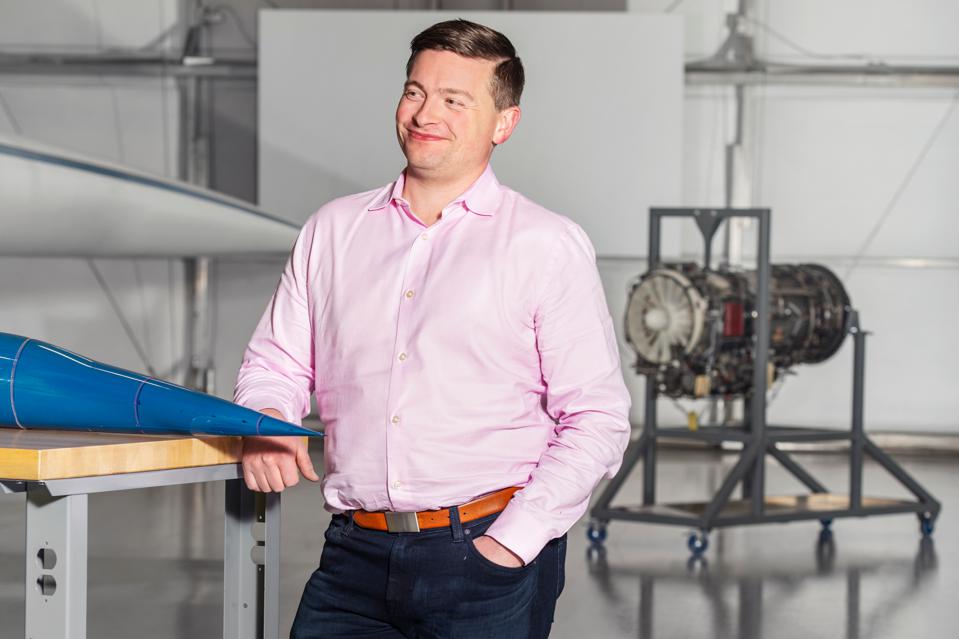
Craig:Excellent. I'll be back a little, I really liked your comment about selling online coupons, which prompted you to create a startup. What advice would you give to someone who works in a comfortable job but feels like they should do something more interesting?
Blake: I think you need to find something that you sincerely dream of exists. Startups are hard. Startups are always difficult, and I think sometimes the difference is that if you are working on something that matters to you, then you will be ready to go through hell. I don't know a single person who would ask the question "Was it worth it?"
Find something that will be worth it for you personally. Shuffle the deck to your advantage. Shuffle the deck so that you have motivation. When you compare what you can create to working at Google / Facebook / Amazon, working for the company should feel less interesting.
If you don't find anything like that, don't start a startup just to get it going. I did just that the first time, and it was terrible. Start a startup when you think, "I have to do this." Personally, I came to the conclusion that the larger the idea, the easier it can be to work on it, since it will motivate you. She will motivate people around you as well. You can attract the best people to work with you. The team that gathered at Boom is phenomenal, and if we were working on a mobile app or even a small plane, it wouldn't be there. We can find amazing people because they look at what we are doing and think, “I can tell my grandchildren about this! Either we change the world or we fail. There is no third".
I think that people often give up on large-scale ideas because they think they are too complex. Sometimes the most important issues are in plain sight without being noticed. We are so used to them that we do not notice them. I'd like more founders to go all-in on this. It might not be the right metaphor, but you know, just find big ideas and get them implemented.
Craig: Yes. I think we could fund much larger applications, maybe even a little crazy. If even one of a thousand of these companies succeeds, then it will have a huge impact on the world.
Blake:I am not criticizing YC in this regard. I think YC is doing better in this regard than anyone else. However, I agree. It's not just about funding. It's about those we inspire and what we inspire them to.
<img src = "
 " alt = "image" />
" alt = "image" />
Craig: Definitely, so I'm interested in talking about your experiences at YC. What advice do you have for hardware companies at YC?
Blake:I think hardware companies have some peculiarities in the context of working with YC. These companies need to understand what they can create and show on Demo Day. It is probably relatively easy for a software company to think of an MVP. Hardware companies face certain challenges and factors that take longer. Perhaps your product will not be released, put up for sale, or you may not even be able to assemble a working demo. You will need to understand as early as possible what the specific progress is on the way to creating your product.
When we thought about it and did our brainstorming, most of the ideas sounded like this: “Well, this will be the most significant technical progress, but no one will appreciate it, because it all sounds like 'Oh, in our simulations we get the ratio of lift and resistance reaching a critical threshold. " That is, it is really important, but no one will understand this, will not believe us, and will not be happy ”. Then we discussed a bunch of things just for show. For example, we talked about developing a flight simulator.
Later we finished the aerodynamics, and then we built a model airplane - and it was beautiful. We might say something like, “Take a look at this model. You can see all the innovations in it. This is why it works. That's why it's possible. " This sounds specific. Basically, we developed a high-level design of a jet engine and created a model on a 3D printer, and then presented a physics engine for demonstration. I'm talking about one of three engines that will power our first aircraft. And of course people said something like "Oh my God, a jet engine."
Craig: Yeah, it's a nerd magnet.
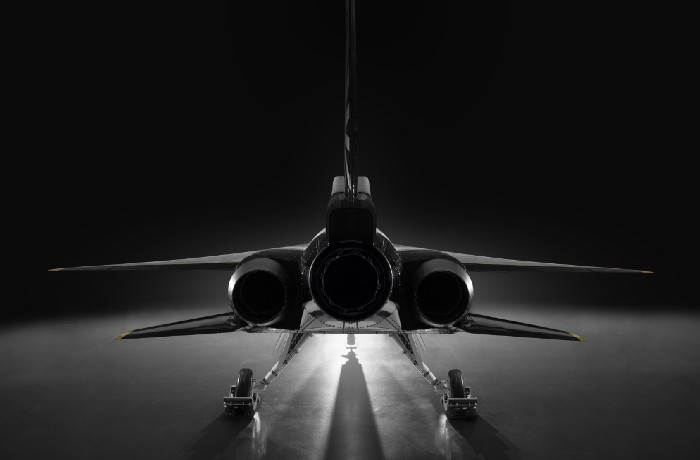
Blake:Exactly. And we managed to find and buy the one on which we will fly. So none of this was a lie. I think that the main task can be formulated as follows - to find what you can do in three months. This will be progress and its immediate presentation.

Craig: That's a great point. So the last question. What are your favorite books, movies, podcasts ... Any media, in general.
Blake: My favorite book is Atlas Shrugged, and it's probably no coincidence that all of its heroes are pilots. Personally, I believe this is not an accident.
We need to think about what else ... I like media that give an idea of the basics of a certain area, even if you don't know anything about it. I enjoy studying biology. There is a now inactive Futures in Biotech podcast. If you are not a biologist, but you think biotechnology is cool, take a look at Futures in Biotech. Listen to their old releases, they have wonderful guests. You will feel like you know enough about biotechnology to appreciate it. What else? Trying to remember something that wouldn't be a trivial recommendation.
Craig: She doesn't have to be custom.
Blake:Then I can say that Ben Horowitz's "It Won't Be Easy" is a good book. There is also "The Innovator's Dilemma", so much is said about it - I wonder how many have actually read it. It's really worth reading. You need to know what disruptive innovation is.
Interview from Aviav.ru
( full version here )- Your supersonic aircraft will operate on fuel derived from atmospheric CO2. How?
“First, let me outline the story. 50 years ago, aviation entered the era of passenger aircraft, which significantly reduced flight times. However, people did not spend less time on airplanes, but on the contrary, because the number of flights has increased significantly. Generally speaking, this is positive information.
But given the scale, it is not enough to be a little more efficient today, it is necessary to become much more efficient, even when we are talking about limiting fuel combustion. That is why we are looking for solutions that will not only reduce CO2 emissions by 20 or 30 percent, but also bring them to zero. We are thrilled to be working with Prometheus, a technology that works like magic.

It is about converting atmospheric CO2 into a liquid hydrocarbon that can be converted into aviation fuel. Of course, such fuels must be tested and certified before they are considered safe in normal use. However, this is a step towards zero emissions in the sense that the carbon dioxide released into the atmosphere can be used as a feedstock to produce clean fuels.
- This process will take place on the ground, not in flight, right?
- Yes, definitely. The result of the process will be aviation fuel, which can be refueled in the plane in the same way as usual. The difference will be in how it is done. This will require energy from renewable sources, be it wind, solar or nuclear power.
“The phenomenon the aviation industry is facing today is the flygskam, which is the shame of flying due to climate concerns. How do you perceive this movement?
- I believe that climate change is a problem that needs to be overcome, and not abandoned the benefits of aviation. For example, since the entry into the era of passenger aircraft, there has not been a single global conflict! I am not saying that airplanes brought peace to the world, but it cannot be denied that they made the world a lot smaller, closer by affecting interpersonal relationships.
What would the world look like if there was nothing alien? If children and teenagers, instead of just reading about Shanghai or Texas, could visit them and get there effortlessly? This would be of great benefit to humanity.
What we need to do is find our way to these benefits without harming the environment. I am convinced that we will not give up travel, we will not return back. That is why we are looking for a way forward, but a good way.
- What experience does the Overture supersonic aircraft offer on board?
Let's go back for a moment to the Concorde, which was a relatively small, in terms of space, experience comparable to traveling in economy class. Since then, we've taken a leap in efficiency, allowing us not only to lower prices, but also to invest in a much more comfortable, spacious and modern interior.
On board Overture, we want to offer a business class travel experience. Its important element will be portholes, through which passengers at an altitude of 18 km will be able to see the curvature of the Earth, the blue of the endless sky - it will be something amazing.

Onboard the Overture supersonic aircraft, the seating should be 1 + 1, which means simultaneous access to the window and aisle. The impression of space will be enhanced by the lack of overhead luggage racks - suitcases should be placed in storage compartments under the previous seat
Each of the passengers will have a large screen, whether for work during the flight or just watching movies. One thing that certainly won't be aboard the Overture is a recliner for a flat bed. For a three-hour flight across the Atlantic, it is no longer needed. You can go home and sleep in your own bed.

On November 9, 2020, a free Startup School for Future Founders by Y Combinator has started from the world's best accelerator, and we will publish useful translations for those who plan to become a founder of an international startup.
Follow the YC Startup Library news in Russian on the Telegram channel or on Facebook .
Useful materials
- Y Combinator:
- Y Combinator 2020
- 143 ( 184)
- 16 Y Combinator « 2017»
- 20 Y Combinator 2018
- 21 Y Combinator 2019
- Y Combinator in Russian
- YCombinator in Russian